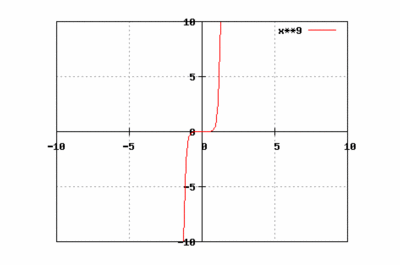User:Petmi
I'm Petmi...my real name is Peter-Michael,but i like this short name.I'm a student at the Gisela-Gymnasium,Munich
Contents
Sandkasten
Formeln
x(t)= [math]x_0[/math] + v*t
[math]\Delta x[/math] = v* [math]\Delta t[/math]
v= [math]\frac {x}{t} [/math]
v= [math]\frac {x_1-x_0}{\Delta t}[/math]
[math]x_1[/math](t)= [math]x_2[/math](t)
[math]x_1+v_1*t = x_2+v_2*t[/math]
[math]x_1-x_2 = (v_2-v_1)*t[/math]
[math]t = \frac {x_1-x_2}{v_2-v_1}[/math] = [math]\frac {173m-25m}{28km/h-11km/h}[/math]
Limeric
Bayern Fan: 57,58,59.........Schei..
BVB Fan:Ein Leben lang keine Schale in der Hand!!!!
Lösungen
Aufgabe 1.7
x Ort
(1) X(10s) = 4m/s x 10s X = 40m
(2) X = 40m +(-2,0 m/s) x 10s X = 20m
(3) X = 20m +(0 m/s) x 5s X = 20m
(4) X = 20m +(1 m/s) x 5s X = 25m
(5) X = 25m +(2 m/s) x 5s X = 35m
(6) X = 35m +(4 m/s) x 10s X = 75m
(7) X = 75m +(0 m/s) x 5s X = 75m
Antwort:Helena legt auf ihrem Pferd, insgesamt 75 meter zurück
in Zusammenarbeit mit User:Lenny Leeb
Aufgabe 2.6
geg: a=0,850 m/s²
v=75,0 km/h
ges: t(bis 75km/h erreicht sind)
Lösung:
a = [math]\frac {v}{t}[/math] --> t = [math]\frac {v}{a}[/math] = [math]\frac {20,83 m/s}{0.850 m/s^2}[/math] = 24,5s
Aufgabe 3.8
a)
geg: v=70 km/h , t=0,20 s
ges: Verzögerung
Lös: v = a*t
--> a = [math] \frac{v}{t}[/math] = [math] \frac{70km/h}{0.02s}[/math] = [math] \frac{19.4m/s}{0.02s}[/math] = 97 [math] \frac{m}{s^2}[/math]
b)
Lös: [math]\frac{F_b}{F_g}= \frac{m*a}{m*g}=\frac{97 \frac{m}{s^2}}{9,81 \frac{kg}{N}}= 9,9[/math]
Antwort: Der Fahrer erfährt das 9,9 fache seiner Gewichtskraft.
Graph
4.16 Verkehrsunfall
geg. m=1,7 t =1700kg m²=650kg v=54 km/h v²=36 km/h unelastischer Stoß!!!
Englisch Übersetzung
Good Style For Calculating:
Attend the “good style” to calculate arithmetic problems
1. Preparing relevant formulas
2. Accretion
3. To find the unknown
4. Adopt the numbers
5. Calculating
6. Round(off the lowest accuracy of the given terms)
For missing steps your points will be decreased
Exercise 1.7: Jump Hurdles
Helena and her horse make a jump over a Hurdle and her teacher takes the dynamic dates with a laser measuring device. The dates get demonstrated on a computer screen in form of a time-velocity and a time-position-diagram. The diagrams help them to analyse the individual phases of the process. First Helen on her horse is moving with constant speed towards the hurdle(1) till the horse suddenly shy’ s and walks back .Helen stops her horse ,try’s again and increases the speed. After 40 seconds the horse jumps and as the horse lands it stops again
5.1 a.
[math]w=\frac {\Delta \phi}{\Delta t}[/math]
[math]w=\frac {26\pi}{300s}= \frac {13\pi}{150}*s^{-1}[/math]
Umlaufdauer: [math]5min=300s [/math]
[math]300s:13=23,1s[/math]
5.2. ...und sie dreht sich doch!...
[math]v=w*r[/math] =2[math]\phi[/math]/24 h-1 =8508[math]\phi[/math]/24 km/h=1113km/h
Fliegen wir mit dieser Geschwindingkeit nach Westen so steht das Flugzeug bez. der Fixsterne und die Erde dreht sich darunter weiter,d.h. die Sonne bleibt an der gleichen Stelle.
5.7 Dosenflug
a) Fzentral = Fgewicht
m*w2*r = m*g
w2*r = g
w2 = [math]\frac {g}{r}[/math]
w = 3.13s-1
w = [math]\frac {v}{r}[/math]
=> v = w*r
V = 3.13s-1*1m
= 3.13 [math]\frac {m}{s}[/math]
b) Epot = Ekin
5.14 Astronomische Massenbestimmung
geg: r = 4.215*105km
T = 42.5h = 153.000s
lsg: Fz = Fgrav
m*w2*r = G*[math]\frac {m1*m2}{r\ltsup\gt2\lt/sup\gt}[/math]
Fußballfans
Während der EM läuft ein frustrierter,betrunkener Fußballfan(90kg) konstant mit 4km/h gegen einen Leidensgenossen(100kg). Nach dem Zusammenprall torkeln sie Arm in Arm mit 3km/h weiter.
a) Wie schnell war der Leidensgenosse vor dem Zusammenstoß?
b) In welche Richtung ist der Leidensgenosse ursprünglich gelaufen?
c) Die menschliche Schmerzgrenze liegt bei 400N.Ist der Zusammenprall schmerzhaft?
d) Von welcher EM-Mannschaft stammen die beiden Fans?
